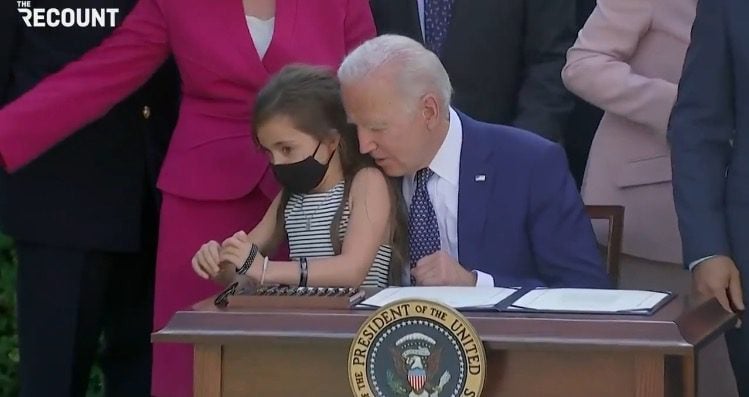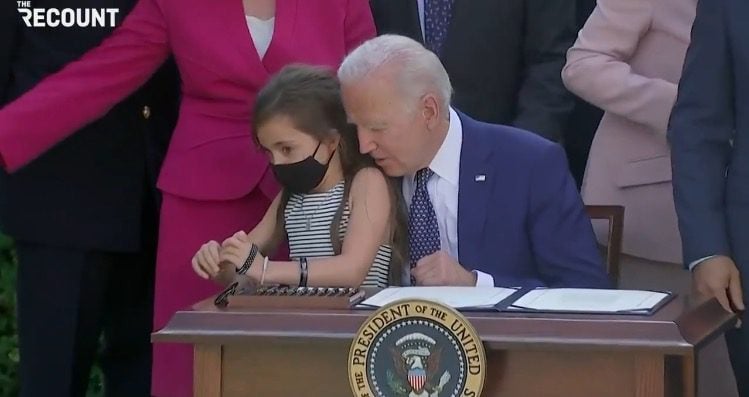Exactly forty years ago, on this day in 1983, the Police went to #1 on the UK Singles Chart with Every Breath You Take” (June 4)
Written by Sting, the single was their fifth UK #1, topping the UK Singles Chart for four weeks.
It was also the biggest US and Canadian hit of 1983, topping the Billboard Hot 100 singles chart for eight weeks (the band's only #1 hit in the US), and the Canadian Chart for four weeks.
It also went to #1 in South Africa and Ireland, #2 in Australia, Norway, Sweden and Spain, #3 in the Netherlands and Italy, and #6 in New Zealand.
It is estimated to generate between a quarter and a third of Sting's music publishing income…
Many misconstrued the song to be a soppy love ballad, but nothing could be further from the truth…
Sting recalled writing the song in Jamaica:
“I woke up in the middle of the night with that line in my head, sat down at the piano and had written it in half an hour.
The tune itself is generic, an aggregate of hundreds of others, but the words are interesting.
It sounds like a comforting love song. I didn't realise at the time how sinister it is.
I think I was thinking of Big Brother, surveillance and control.”
In a 1983 interview with the New Musical Express, Sting explained: "I think it's a nasty little song, really rather evil. It's about jealousy and surveillance and ownership.”
"The song has the standard structure of a pop ballad, but there is no harmonic development after the middle eight, no release of emotions or change in the point of view of the protagonist.
He is trapped in his circular obsessions.
Of course, I wasn't aware of any of this. I thought I was just writing a hit song, and indeed it became one of the songs that defined the ‘80s.”
Regarding the common misinterpretation of the song, he added: "I think the ambiguity is intrinsic in the song however you treat it because the words are so sadistic.
On one level, it's a nice long song with the classic relative minor chords, and underneath there's this distasteful character talking about watching every move.
I enjoy that ambiguity.
I watched Andy Gibb singing it with some girl on TV a couple of weeks ago, very loving, and totally misinterpreting it.
I could still hear the words, which aren't about love at all.
I pissed myself laughing."
At the 26th Annual Grammy Awards, the song was nominated for three Grammy Awards, including Song of the Year, Best Pop Performance by a Duo or Group with Vocals, and Record of the Year, winning in the first two categories.
For the song, Sting received the 1983 Ivor Novello Award for Best Song Musically and Lyrically from the British Academy of Songwriters, Composers and Authors.
In the 1983 Rolling Stone critics' and readers' poll, it was voted "Song of the Year".
In the US, not only was it the best-selling single of 1983, it was also the fifth-best-selling single of the decade.
Billboard also ranked it as the #1 song for 1983.
The song ranked #84 on the Rolling Stone list of the 500 Greatest Songs of All Time and is included in The Rock and Roll Hall of Fame's 500 Songs that Shaped Rock and Roll.
It also ranked l#25 on Billboard's Hot 100 All-Time Top Songs.
In May 2019, it was recognised by BMI as being the most played song in radio history.
Click on the link below to watch:
Login to view embedded media
On this day in 1984, Bruce Springsteen released the LP “Born in the U.S.A.” (June 4)
The “Born in the U.S.A.” sessions were the most prolific point of Springsteen's career, and covered more than two years (January 1982 through March 1984), producing approximately 80 songs.
It’s impossible to separate them from the songs that comprised the album “Nebraska”; and at one point, Springsteen considered combining both sources as a double-album release…
“I had these two extremely different recording experiences going," he told Mark Hagen in an interview for Mojo published in January 1999. "I was going to put them out at the same time as a double record.
I didn't know what to do."
But they were eventually two separate albums, and following “Nebraska”s release a couple of years earlier, “Born in the U.S.A.” became the best-selling album of 1985.
It actually proved to be the best-selling record of Springsteen's career; in fact one of the highest-selling records ever, producing seven Top 10 hit singles, including the title track, “Cover Me”, “Glory Days”, “I’m on Fire”, and “Dancing in the Dark”.
The album stayed at #1 on the US Billboard 200 Albums Chart for seven weeks, and remained on the chart for a massive one hundred forty three weeks.
It also topped the charts in Australia, Austria, Germany, the Netherlands, New Zealand, Norway, Sweden and Switzerland.
Annie Leibovitz's famous cover photo for “Born in the U.S.A.” also became one of the iconic album covers of the era.
In 2020, Rolling Stone ranked “Born in the U.S.A.” #142 on their list of the 500 Greatest Albums of All Time.
Springsteen's iconic single of the same name was ranked 275th on Rolling Stone's list of "The 500 Greatest Songs of All Time", and in 2001, the RIAA's Songs of the Century placed the song 59th (out of 365).
The song is not, as some people misinterpret, a chest-beating celebration of America, but rather addresses the hardships of Vietnam veterans upon their return home, juxtaposed ironically against patriotic glorification of the nation's fighting forces.
Click the link for a classic live Springsteen rendition of the anthem:
Login to view embedded media
On this day in 1988, the Tracy Chapman single “Fast Car” debuted on the Billboard Hot 100 at #95 (June 4)
In 1987, Chapman was discovered by fellow Tufts University student Brian Koppelman.
In an interview he said "I was helping organize a boycott protest against apartheid at school, and [someone] told me there was this great protest singer I should get to play at the rally."
After seeing her play, he was blown away, and offered to show her work to his father, who owned a successful publishing company; however, she didn’t really consider the offer to be serious.
After multiple performances, however, Koppelman found a demo tape of her singing, which he promoted to radio stations, and she was eventually signed to Elektra Records.
This was her debut single…
Chapman’s unique vocal style, minimalist arrangements, and insightful socio-politically charged lyrics combined to make the world sit up and take notice…
It went all the way to to #1 in Canada, Ireland, Belgium, Portugal, and the Netherlands, #4 in Australia, #5 in the UK, #6 in the US, and #9 in Sweden.
In April 2011, "Fast Car" entered the UK Top 10 for the second time at #4 after Michael Collings performed it on Britain's Got Talent, one position higher than its initial chart success in 1988.
"Fast Car" received three Grammy Award nominations: Record of the Year, Song of the Year, and Best Female Pop Vocal Performance, the latter of which it won.
Rolling Stone ranked "Fast Car" #71 on their 2021 list of the 500 Greatest Songs of All Time.
Click on the link below to watch it live:
Login to view embedded media
On this day in 1977, the Supertramp single “Give A Little Bit” debuted on the US Billboard Hot 100 at #77 (June 4)
The acoustic guitar-based song from the excellent “Even In The Quietest Moments” LP was a Top 10 hit in Canada, Norway, South Africa, and the Netherlands, and peaked at #15 on the US Billboard Hot 100.
"Give a Little Bit" was first written by Roger Hodgson when he was 19 or 20 years old before it was introduced to the band for recording five to six years later.
Hodgson said that the song was inspired by the Beatles' "All You Need Is Love", released during the love and peace movement of the 1960s.
Click on the link below to watch it live:
Login to view embedded media
On this day in 1983, the Michael Sembello single “Maniac” debuted on the US Billboard Hot 100 at #89 (June 4)
The song by Stevie Wonder’s former guitarist from the smash hit movie “Flashdance” went all the way to #1 in the US and Canada, #2 in Australia, Spain, and Switzerland, and hit the Top 10 in New Zealand, Germany, and the Netherlands.
As part of the “Flashdance” soundtrack, all of the songwriters who contributed to the album won the Grammy Award for Best Album of Original Score Written for a Motion Picture or a Television Special.
An MTV and dance floor favourite…
Click on the link below to watch:
Login to view embedded media
On this day in 1977, the Commodores single “Easy” debuted on the US Billboard Hot 100 at #78 (June 4)
The classic song from their fifth studio album, Commodores, released on the Motown label, was written by Lionel Richie.
"Easy" reached #1 on the Billboard Hot Soul Singles chart, #4 on the Billboard Hot 100, #9 in New Zealand, and #12 in Canada, paving the way for similar Richie-composed hit ballads such as "Three Times a Lady" and Richie's later solo hits like “Hello”.
Faith No More covered the song in 1992 and it became a worldwide hit, reaching #1 in Australia and becoming a Top 10 hit in eight other countries.
Click on the link below to watch:
Login to view embedded media
On this day in 1979, the M single “Pop Muzik” debuted on the Australian charts at #50 (June 4)
“Pop Muzik” was one of a number of what would be later considered real 80s-style songs, that started coming out in 1979…
M is the British musician Robin Scott, who wrote, produced and sang lead on the track.
He describes the genesis of "Pop Muzik":
“I was looking to make a fusion of various styles which somehow would summarise the last 25 years of pop music.
It was a deliberate point I was trying to make. Whereas rock and roll had created a generation gap, disco was bringing people together on an enormous scale.
That's why I really wanted to make a simple, bland statement, which was, 'All we're talking about basically (is) pop music.'”
It was a worldwide hit.
Not only in New York, London, Paris and Munich…
The song went to #1 in the US, Australia, Canada, South Africa, Sweden, Switzerland, Germany and Denmark, #2 in the UK, Ireland and Austria, #3 in New Zealand, the Netherlands and Belgium, and #5 in Norway.
David Bowie contributed handclaps to the song.
Yes….you read that correctly!
Bowie was a good friend of Robin Scott and happened to living in Montreux at the time, where the album (“New York-London-Paris-Munich”) was recorded at Queen’s recording studio, Mountain Studios.
Click on the link below to watch:
Login to view embedded media
On this day in 1994, the Wet Wet Wet single “Love Is All Around” went to #1 on the UK Singles Chart (June 4)
From the soundtrack to the smash hit film “Four Weddings and a Funeral”, the cover version of The Troggs' 1967 trans-Atlantic Top 10 hit remained at #1 on the UK Singles Chart for a staggering fifteen weeks, and was then the ninth (now twelfth) biggest selling single of all time in Britain.
The song’s 15-week spell at #1 was the joint third-longest UK #1 chart reign of all time.
When screenwriter Richard Curtis approached Wet Wet Wet about recording a cover song for the soundtrack of his film “Four Weddings and a Funeral”, the band got to pick between three choices of songs, the other two being "I Will Survive" by Gloria Gaynor and "Can't Smile Without You" by Barry Manilow.
Singer Marti Pellow said the decision to pick "Love is All Around" for the film starring Andie MacDowell and Hugh Grant was an easy choice "because we knew we could make it our own".
It has sold around 2 million copies in the UK, making it the country's best-selling love ballad of all time (including download and physical sales only).
The song also made it to #1 in Australia, the Netherlands, Norway, Finland, Sweden, Scotland, New Zealand, Iceland, Denmark, and Belgium…
Click on the link below to watch:
Login to view embedded media
 instagram.com
instagram.com
 instagram.com
instagram.com




